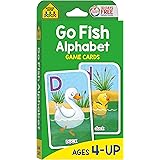Unlock the Secret: When to Use ‘Appraise’ to Transform Your Communication Instantly!

WRITING WELL
As well as other commonly confused words, including doublets (AKA “etymological twins”)
I’ve written multiple posts on commonly confused words, including a very popular one, “‘Coincide,’ ‘Correspond,’ and ‘Correlate’ — When to Use Which (and which prepositions to use with them)” as well as posts on “ensure/insure/assure,” “who/whom,” and “farther/further” plus numerous other terms. The more I learn about commonly confused words in the English language, though, the more I begin to understand how much more there is to learn about them.
Take doublets, for example. Also known as “etymological twins,” doublets are defined by Merriam-Webster as words that are “derived by different routes of transmission from the same source.” In other words, they can be traced back to something like a certain Latin root. When doublets also sound similar, they’re commonly confused. Consider this example:
“Plays are often written in three discrete acts.”
Since “discrete” means “individually distinct,” this statement makes sense. The more commonly used “discreet,” however, refers to prudent behavior rather than distinction, so it’s correctly used in references to someone behaving in a “discreet” manner (i.e., a way that doesn’t draw attention to themselves or what they’re doing).
Turns out that “discrete” and “discreet” not only sound the same but derive from the same Latin root, “discretus,” which I understand is the past participle of “discernere” (“dis” meaning “apart” and “cernere” meaning “to separate ”). And while “discrete” came to English directly from Latin with the original meaning pretty much intact, “discreet” arrived via Old French, where it had evolved to mean keeping things not just separate but away from public view. One trick to remembering the difference is to think of the “t” in “discrete” as falling between the two letter “e’s,” keeping them distinctly separate.
There are many other doublets in the English language, but few are as similar and commonly confused as “discrete” and “discreet.” One possible…


















